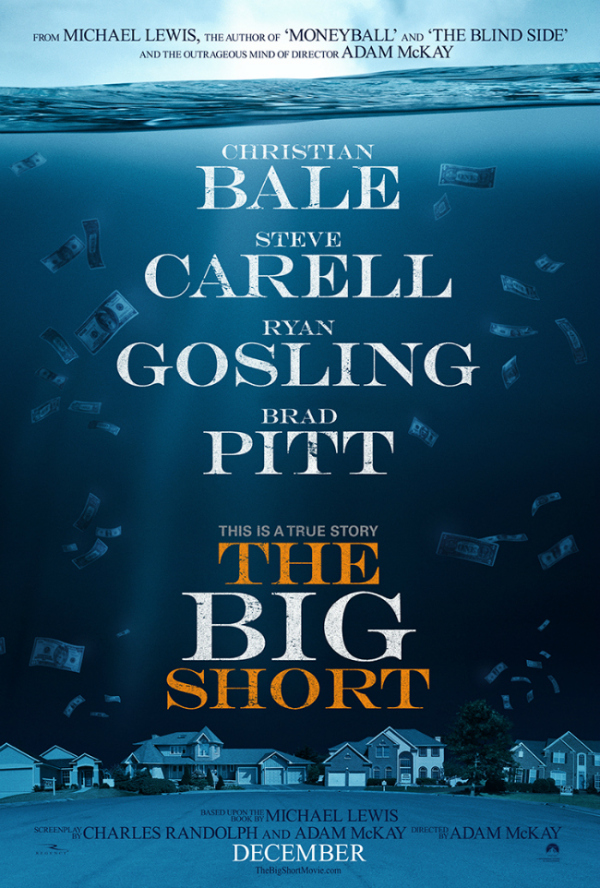FRESH AIR FILM CRITIC DAVID EDELSTEIN: I don’t know how director Adam McKay pulled it off, but with “The Big Short,” he has made an exuberant comedy about the global financial apocalypse of 2008. It’s goofy, suspenseful, fast-moving and also manages to explain the labyrinthine fraud that led to the crisis. Because the more you understand, the more your mind is blown by the scope of the greed and illogic.
Mckay is working from a terrific playbook, Michael Lewis’s book of the same name on the collapse of the subprime mortgage market. The film’s protagonists are traders, ex-traders, fund managers and bankers. These men recognize what others can’t seem to process – that the real estate market is a bubble kept aloft by bad, terrible, awful, indefensible loans. In defiance of the conventional wisdom, they bet against, or short, the booming economy.
Mckay invents his own syntax for “The Big Short,” part business thriller, part goofball comedy with interruptions for sidebars in which glamorous celebrities explain what’s meant by mortgage-backed securities, collateralized debt obligations and extrapolation bias. The segments make splendid sense. It’s no coincidence that McKay and co-writer Charles Randolph have acknowledged the influence of the Peabody-winning “This American Life” episode, “The Giant Pool Of Money.”
Our master of ceremonies is Deutsche Bank’s Jared Vennett, played with consummate smoothness by Ryan Gosling. He addresses the camera, offers some historical context and introduces characters like the barely-socialized but ingenious San Jose money manager Mike Burry, played with hermetically-sealed weirdness by Christian Bale, and the volatile New York hedge fund manager, Mark Baum, played by Steve Carell. Finn Wittrock and John Magaro play the other protagonists, fledgling Colorado hedge funders who go to their old mentor, played with pointy-headed understatement by a bearded Brad Pitt, to help them get a seat at the table where the big boys throw around real money. MORE

